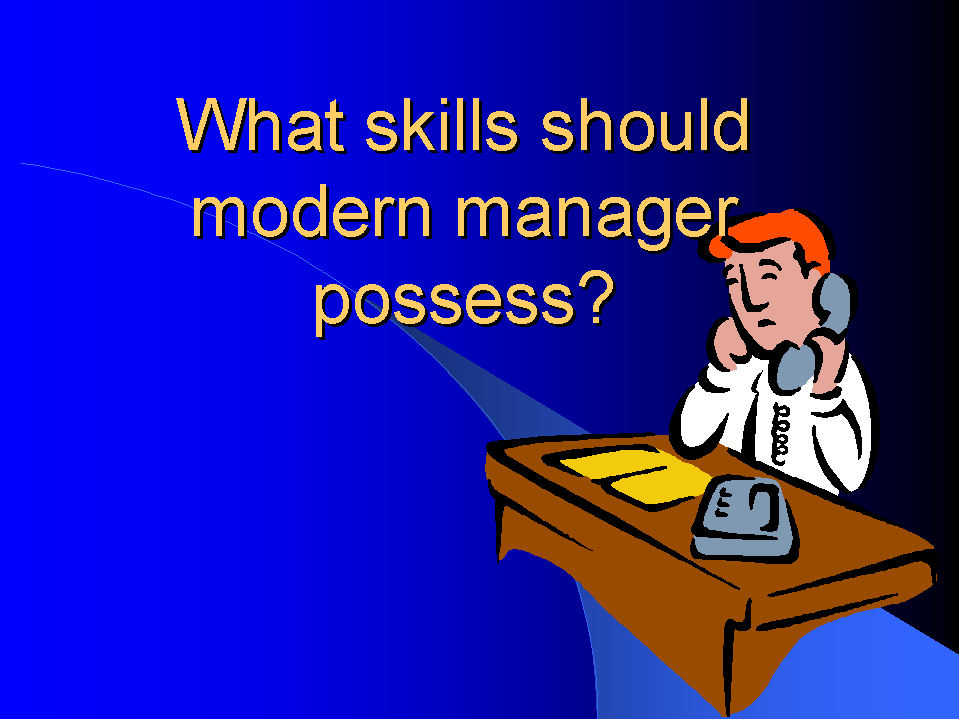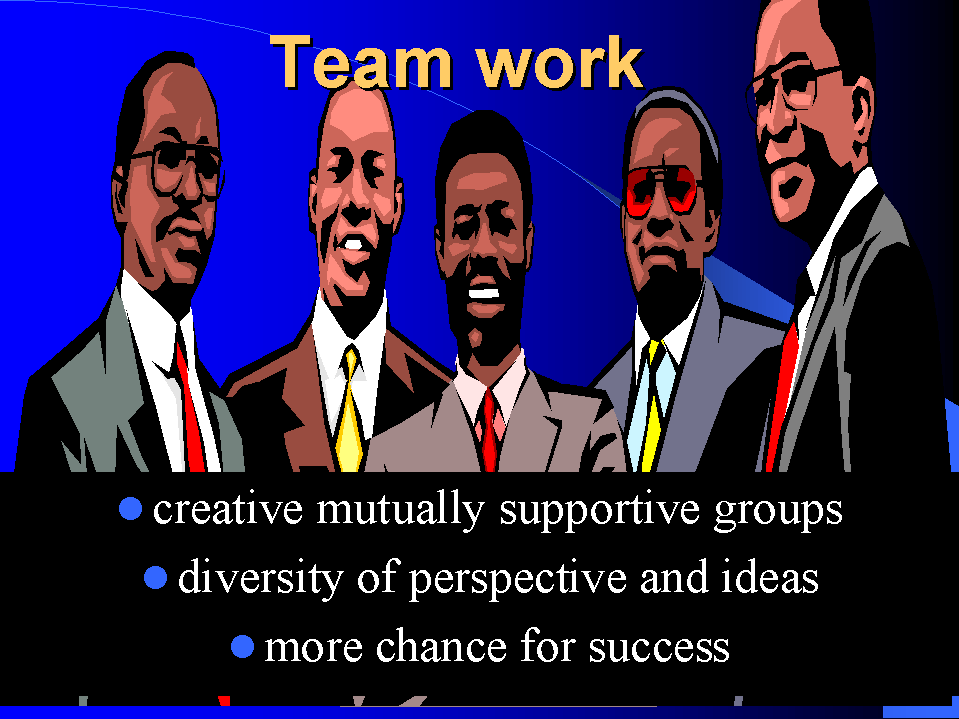
Even though we recognize that all managers - regardless of level, organization size, profit or nonprofit enterprise - perform the four basic activities of management to some degree, a more crucial question becomes, "What are the critical skills that are related to managerial competence?" In the 1970s management researcher Robert L. Katz attempted to answer that question. What Katz and others have found is that managers must possess four critical management skills. Management skills identify those abilities of behaviors that are crucial to success in a managerial position. These skills can be viewed on two levels - general skills a manager must possess and the specific skills that are related to managerial success. Let's look at these categories.
General Skills
There seems to be overall agreement that effective managers must be proficient in four general skills areas. These are conceptual, interpersonal, technical and political skills.
Conceptual skills refer to the mental ability to analyze and diagnose complex situations. They help managers see how things fit together and facilitate making good decisions. Interpersonal skills encompass the ability to work with, understand, mentor. And motivate other people, both individually and in groups. Since managers get things done through other people, they must have good interpersonal skills to communicate, motivate, and delegate. Additionally, all managers need technical skills. These are abilities to apply specialized knowledge or expertise. For top-level managers, these abilities tend to be related to knowledge of industry and a general understanding of the organization's processes and products. For middle and lower-level managers, they are related to the specialized knowledge required in the areas with which they work - finance, human resources, manufacturing, computer systems, law, marketing, and the like. Finally, managers need political skills. This area is related to the ability to enhance one's position , build a power base, and establish the right connections. Organizations are political arenas in which people compete for resources. Managers with good political skills tend to be better at getting resources for their group that are managers with poor political skills. They also receive higher evaluations and get more promotions.
Specific Skills
Research has also identified six sets of behaviors that explain a little more that 50 percent of a manager's effectiveness.
- Controlling the organization's environment and resources. This includes demonstrating, in planning and allocation meetings as well as in on-the-spot decision making, the ability to be proactive and stay ahead of environmental changes. It also involves basing resource decisions on clear, up-to-date, accurate knowledge of the organization's objectives.
- Organizing and coordinating. In this skill, managers organize around tasks and then coordinate interdependent relationships among tasks wherever they exist.
- Handling information. This set of behaviors comprises using information and communication channels for identifying problems, understanding a changing environment, and making effective decisions.
- Providing for growth and development. Managers provide for their own personal growth, as well as for the personal growth and development of their employees, through continual learning on the job.
- Motivating employees and handling conflicts. Managers enhance the positive aspects of motivation so that employees feel impelled to perform their work and eliminate those conflicts that may inhibit employees' motivation.
- Strategic problem solving. Managers take responsibility for their own decisions and ensure that subordinates effectively use their decision-making skills.
Management Competencies
The most recent approach to defining the manager's job focuses on management competencies. These are defined as a cluster of related knowledge, skills, and attitudes related to effective managerial performance. One of the most comprehensive competency studies has come out of the United Kingdom. It's called the management charter initiative (MCI). Based on an analysis of management activities and focusing on what effective managers should be able to do rather that on what they know, the MCI sets generic standards of management competence. Currently, there are two sets of standards. Management I is for first-level managers. Management II is for middle managers. Standards for top management are under development.
For each area of competence there is a detailed set of specific elements that define effectiveness in that area. For instance, one area of competence is recruiting and selecting personnel. Successful development of this competence area requires that managers be able to define future personnel requirements, to determine specifications to secure quality people, and to assess and select candidates against team and organizational requirements.
The MCI standards are attracting global interest. The Australian Institute of Management, for example, has already started using the standards, and the Management Development Center of Hong Kong is considering introducing them to help managers become more mobile after China's recent takeover of Hong Kong.
American institute of Gallup defines 5 basic requirements that guarantee success in every manager's job:
- Common sense
- Knowledge of business
- Self-confidence
- High level of education
- Ability to finish what has been started
One final question: How do you learn to be a manger for the XXI century in an uncertain and rapidly changing world? More specifically, how does a course in management or a college degree in business prepare you to become a manger ready to face the challenges of the next ten years?
Management is both art and science. It is an art because many skills cannot be learned from a textbook. Management takes practice, just like golf, tennis, or volleyball. Studying a book helps but that is not enough. Many skills, especially the human, and to some extent, the conceptual skills take practice. These skills are learned through experience.
Management is also a science because a growing body of knowledge and objective facts describes management and how to attain organizational performance. The knowledge is acquired through systematic research and can be conveyed through teaching and textbook. Systematic knowledge about planning, organizing, and control system design, for example, helps managers understand the skills they need, the types of roles they must perform, and the techniques needed to manage organizations.
Becoming a successful manager requires a blend of formal learning and practice, of science and art. Practice alone used to be enough to learn how to manage, but no longer. Formal coursework in management can help a manager become more competent and be prepared for the challenges of the future. The study of management enables people to see and understand things about organizations that other cannot. Training that helps one acquire the conceptual, human, and technical skills necessary for management will be an asset.
A few clues about the importance of acquiring management skills were uncovered by the Center for Creative Leadership in Greensboro, North Carolina. This study compared 21 derailed executives with 20 executives who had arrived at the top of the company. The derailed executives were successful people who had been expected to go for but reached a plateau, where fired, or were forced to retire early. Successful and derailed managers were similar in many ways. They were bright and excelled in a technical area such as accounting or engineering. They worked hard, made sacrifices in order to achieve, and established good track records.
Those who arrived at the top, however, had more diverse track records - they did not rely on a single, functional skill. Moreover, they had excellent interpersonal skills. They maintained composure under stress, were able to laugh at themselves, and handled mistakes with poise and grace. They also were conceptually strong and could focus on problems and solve them.
In the managers who had derailed, the single biggest law was insensitivity to others. Often this characteristic was associated with other negative personal qualities, such as abrasiveness, aloofness, and arrogance. These managers also failed to display conceptual skills and were unable to think strategically, that is, take a broad, long0term view. The successful managers were superb negotiators and could confront people and problems without offending anyone. They did not blame things on others, and if they made a mistake, they did not dwell on it and kept their sense of humor. Because they readily took responsibility for mistakes, their errors were never fatal.
The ability to use human skills was the most striking difference between the two groups. Some managers had been able to improve their human skills. One manager had been cold and arrogant and, once he realized these limits to his career, changed almost overnight. He made a genuine effort to develop better human skills - and succeeded.
Over the next ten years, new forces are going to shape managerial careers. Managers will have to rely heavily on human skills and conceptual skills, but they will apply them in new ways. Major changes on the horizon for which managers must prepare are as follows:
Managing diversity. Managers learn to motivate and lead different types of people and to attract the best people from these groups.
Flexibility. Speed and flexibility will become dominant competitive issues. Product and service must be delivered faster to be competitive, which requires new forms of organizing and motivating. Moreover, companies will have to respond with products that fit market segments, the preferences of ethic groups, and fast growing regions. Speed and responsiveness will be far more important than the organizational stability and reliability of the old days.
Globalization. Managers will need to think globally because companies will be enmeshed with foreign competitors, suppliers and customers. Managers of the future will have to lead organizations to greater competitiveness on a global scale. All the rapid developments are changing the global picture, forcing managers to think globally.
Source: Fundamentals of Management. Stephen P. Robbins, David A. DeCenzo.

